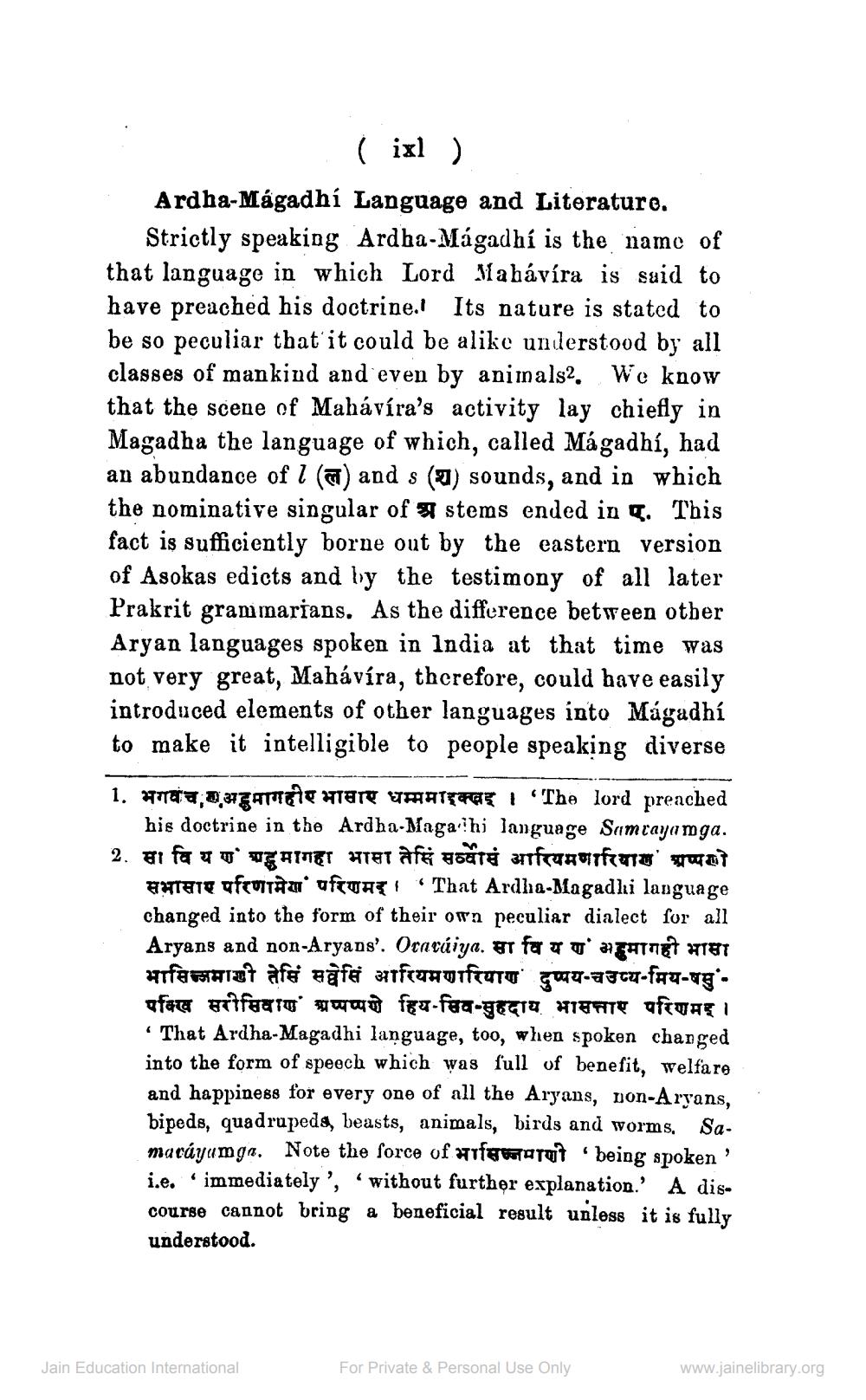________________
( ixl) Ardha-Mágadhí Language and Literaturo.
Strictly speaking Ardha-Mágadhí is the name of that language in which Lord Vahávíra is suid to have preached his doctrine. Its nature is stated to be so peculiar that it could be alike understood by all classes of mankind and even by animals. We know that the scene of Mahávíra's activity lay chiefly in Magadha the language of which, called Mágadhí, had an abundance of 1 () and s (1) sounds, and in which the nominative singular of stems ended in g. This fact is sufficiently borne out by the eastern version of Asokas edicts and by the testimony of all later Prakrit grammarians. As the difference between other Aryan languages spoken in India at that time was not very great, Mahávíra, therefore, could have easily introduced elements of other languages into Mágadhí to make it intelligible to people speaking diverse
1. para 3.amT TETT PATETER I The lord preached
his doctrine in the Ardha-Magathi language Samraya mga. 2. सावि यण अहमागहा भासा तेसिं सव्वास आरियमणारियाण' अप्पणी
FHTETU OFTUITÀQ' OfTUAT! That Ardha-Magadhi language changed into the form of their own peculiar dialect for all Aryans and non-Aryans'. Oracúiya. Hi furu' #FATTET HTET भासिममाणी तेसिं सवेसिं आरियमणारियाण दुप्पय-चउप्य-मिय-वसु ofat #itfortowo feu-fera-C10 HEFT FTUAT I · That Ardha-Magadhi language, too, when spoken changed into the form of speech which was full of benefit, welfare and happiness for every one of all the Aryans, non-Aryans, bipeds, quadrupeds, beasts, animals, birds and worms, Sa. maráyumga. Note the force of a famatut being spoken' i.e. immediately', without further explanation.' A discourse cannot bring a beneficial result unless it is fully understood.
Jain Education International
For Private & Personal Use Only
www.jainelibrary.org




